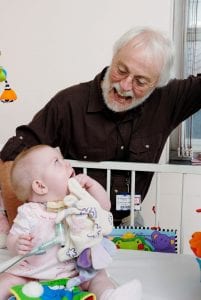 By Professor Nishan Canagarajah, Pro Vice-Chancellor for Research.
By Professor Nishan Canagarajah, Pro Vice-Chancellor for Research.
Working at one of the UK’s leading universities, in a role where I regularly meet with students, researchers and peers from across the higher education sector, it’s easy to forget how extraordinary this environment is.
I use the word extraordinary, which is both accurate and perhaps a little misleading. What happens at universities is extraordinary in that they provide unique and far-reaching opportunities for people to discover, learn, collaborate, push the boundaries of knowledge and grow new ideas into ventures that drive world-leading innovation. But it’s also ordinary in that the challenges that we work on are global and confront us all, in our everyday lives.
In the 25 years that I’ve been with the University of Bristol, I’m continually impressed and inspired by how ideas are taken to fruition, sometimes in unexpected ways and often to levels of success that have surpassed expectations – and made an impact on a vast scale.
I am immensely proud of the work of our academics here at the University of Bristol who are working with fellow researchers in more than 40 countries, improving health, alleviating poverty, driving technological innovation.
This month sees the launch of MadeAtUni, a campaign spearheaded by Universities UK that aims to highlight the enormous impact that UK universities make on our lives.
One of Bristol’s many seminal research projects is included in ‘The UK’s Best Breakthroughs: 100+ Ways Universities Have Improved Everyday Life’, produced by UUK as part of the campaign.
The research highlighted by UUK relates to cot death, or Sudden Infant Death Syndrome (SIDS), a disturbing pattern that emerged in the 1980s without explanation – until Professor Peter Fleming conducted an in-depth study and found that babies who were put to sleep on their front contributed to a ten-fold increase in the risk of cot death. The research later informed the high-profile Back-to-Sleep campaign in the early 90s to ensure babies slept on their back. It’s estimated that the campaign saved in the region of 20,000 lives and continues to do so.

This is just one of countless examples of how universities transform lives, both at a global and local level. There are many new enterprises, from start-up to large-scale, that have emerged from research carried out here – research that contributes to the economic growth and prosperity of our region and often nationally.
Universities are truly global institutes where people and ideas come together from a broad spectrum in an environment designed to inspire, educate and inform – not just the people who come here, but everyone who is affected by the issues we collectively explore.
They help us harness the imagination and exceptional talents of staff, students, alumni, supporters, partners and benefactors, all of whom help us realise our collective ambitions to make our world a better place to live.
MadeAtUni gives us a reason to pause, reflect and celebrate this fact. Without universities, more importantly the people they bring together, we’d be limiting the vital breakthroughs that transform lives and the environment across the globe.
